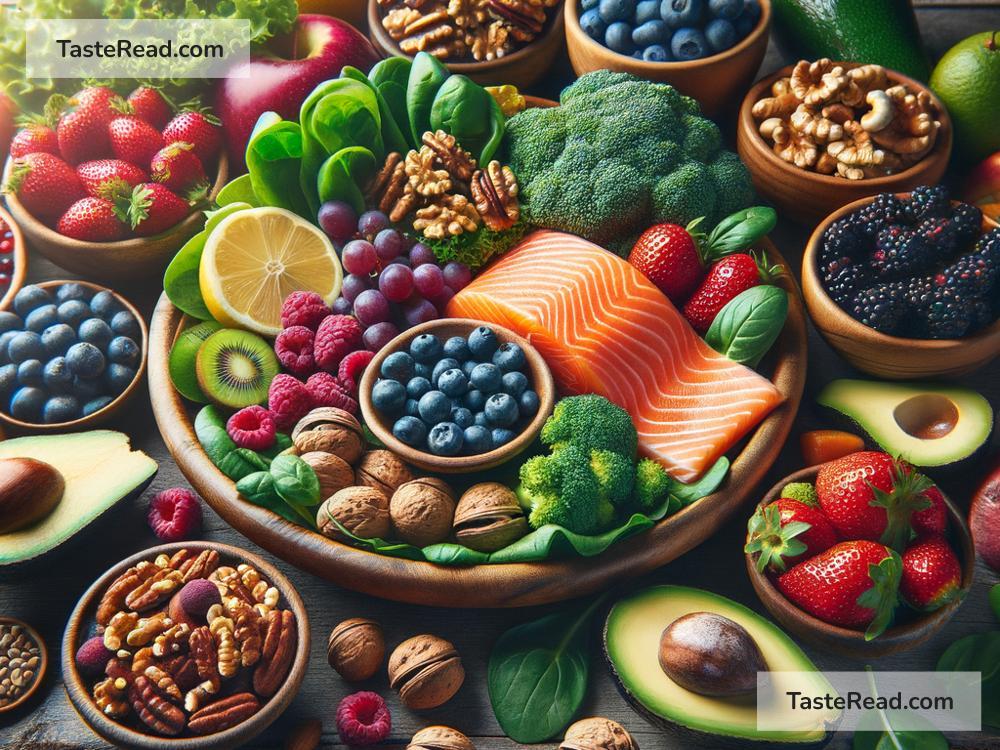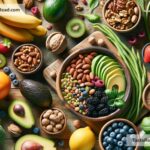Eating for a Positive Body Image: Foods to Help Reduce Body Dissatisfaction
Body dissatisfaction can affect anyone, regardless of age, gender, or size. Feeling unhappy with how you look can lead to low self-esteem, stress, and even unhealthy eating habits. While many factors contribute to body image, what you eat plays a surprisingly important role in supporting both your physical and mental well-being. Foods can’t change your appearance overnight, but they can help improve your mood, energy levels, and overall self-confidence. In this article, we’ll explore easy-to-understand, feel-good foods that promote a healthy mind and body.
How Foods Affect Body Image
It’s easy to think of food simply as fuel for your body, but it also impacts your brain. The nutrients you consume affect how you feel physically and emotionally. For example, eating sugary snacks or junk food can lead to energy crashes, irritability, and feelings of guilt—all of which can worsen body dissatisfaction. On the other hand, wholesome, nutrient-rich foods can boost your mood, improve your digestion, and give you long-term energy.
When you eat well, your body functions better. You’re less likely to feel bloated, sluggish, or stressed about your appearance. Plus, certain foods promote better brain health, which can reduce negative thoughts about yourself.
Foods to Reduce Body Dissatisfaction
Here are some simple and convenient food options to help you feel good about your body and foster a positive mindset:
1. Leafy Greens (Spinach, Kale, or Lettuce)
Leafy greens like spinach, kale, and lettuce are packed with nutrients such as magnesium, iron, and vitamin C, which help your body feel strong and energized. They’re also low in calories but high in fiber, which means they keep you feeling full without causing bloating.
Eating more greens can improve digestion, which often boosts your mood and reduces the uncomfortable feelings that may come with overeating or consuming processed foods. You can toss them in salads, blend them into smoothies, or sauté them for a tasty side dish.
2. Whole Grains (Oats, Brown Rice, or Quinoa)
Whole grains contain complex carbohydrates that provide long-lasting energy. Unlike refined grains, they don’t spike your blood sugar, which can lead to mood swings. Whole grains also contain fiber and nutrients that can improve gut health—a key factor for feeling good both physically and emotionally.
Try having oatmeal for breakfast, brown rice with dinner, or quinoa in salads to feel satisfied and energized throughout the day.
3. Fatty Fish (Salmon, Tuna, or Mackerel)
Fatty fish are rich in omega-3 fatty acids, which are essential for brain health. Omega-3s can reduce feelings of anxiety and depression while improving memory and mood. When your brain feels calm and balanced, you’re less likely to dwell on negative thoughts about your body.
Aim to eat fatty fish 1-2 times a week. If fresh fish isn’t an option, canned tuna or salmon can work just as well.
4. Nuts and Seeds (Almonds, Walnuts, or Chia Seeds)
Nuts and seeds are small but mighty sources of healthy fats, protein, and vitamins. They help you stay full and satisfied while supporting brain function. Walnuts, for example, are linked to improved mood, while chia seeds are excellent for energy.
Snack on a handful of almonds, sprinkle flaxseeds on yogurt, or add chia seeds to your smoothies for a nutrient-packed boost.
5. Colorful Fruits (Berries, Bananas, or Apples)
Fruits are nature’s candy, bursting with vitamins, antioxidants, and fiber that benefit your body and mind. Berries like blueberries and strawberries are particularly good for fighting inflammation and stress, while bananas are a reliable source of energy and mood-boosting potassium.
The natural sweetness in fruits can help you avoid cravings for unhealthy, sugary snacks, keeping you on track toward feeling good about yourself. Try pairing fruits with nuts or yogurt for an ideal snack.
6. Probiotic Foods (Yogurt, Kefir, or Pickled Vegetables)
Probiotics—found in foods like yogurt, kefir, sauerkraut, and kimchi—support gut health. A healthy gut is connected to better digestion, improved immunity, and better mental health. Since your gut is often called your “second brain,” taking care of it can help ease stress and anxiety, which are major contributors to body dissatisfaction.
Enjoy a cup of yogurt for breakfast or add fermented veggies to sandwiches or salads for a gut-friendly meal.
7. Dark Chocolate
Yes, chocolate can be part of a feel-good diet! Dark chocolate contains important minerals like magnesium, which calm the nervous system and support brain health. This type of chocolate also triggers the release of serotonin—the “happiness hormone”—which can uplift your mood.
Opt for a small piece of dark chocolate (70% cocoa or higher) as a treat when you need a pick-me-up.
Additional Tips to Feel Good About Your Body
While food plays a key role in how you feel, balance is also important. Remember these lifestyle tips:
– Drink Water: Staying hydrated reduces bloating and fatigue.
– Move Your Body: Exercise helps you feel strong and improves your mental health.
– Be Kind to Yourself: Practice positive self-talk and remind yourself that your worth isn’t tied to your appearance.
Final Thoughts
Body dissatisfaction can be tough to deal with, but small changes in your diet can make a big difference in how you feel. Focus on adding nutritious, wholesome foods to your meals instead of worrying about restrictions. When you prioritize your health in a way that feels good and kind, your confidence will grow naturally.
Remember, you deserve to feel amazing in your own skin—and you’re beautiful just the way you are.


